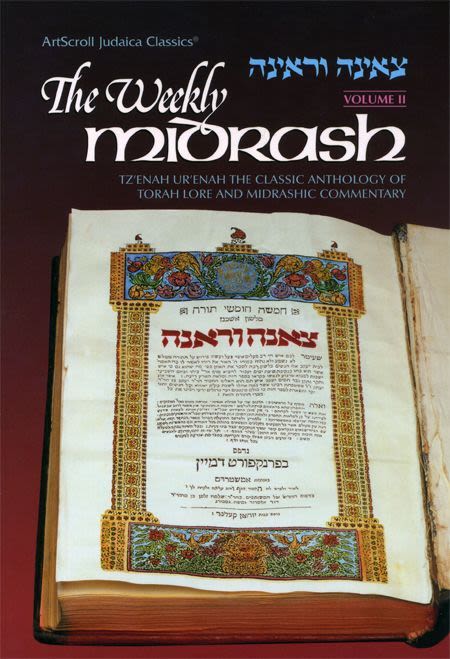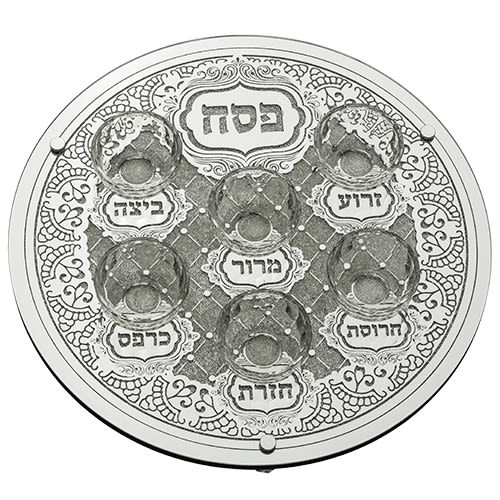
Vayeitzei: Leah’s Song
Parshat Vayetze: Rebbe Shimon says, "From the day Hashem created the world, there wasn’t a person who praised Hashem, until Leah did." What? No one praised Hashem until then?

The Gemara states, “Rebbe Yochanan who learned from Rebbe Shimon Bar Yochai said, ‘From the day Hashem created the world, there wasn’t a person who praised Hashem, until Leah came to praise Him, as it says, ‘This time I praise Hashem’” (Gemara, Berachot, 7b).
The Even Yisrael in his explanation on the Torah (Parshat Vayetze) asks the question: “Is it possible that we can read this Gemara literally?” Can it really be true that no one praised Hashem until Leah? Abraham our forefather didn’t praise Hashem? It’s unbelievable – specifically since there is a requirement in religious law for a person to make the blessing, “Hashem is good and does good,” after giving birth to a boy, and we know that Abraham kept the Torah in its entirety, even the rabbinic laws like Eruv Tavshilin (Kiddushin, 82), certainly he blessed Hashem when he had a son! Many might be familiar with the Midrash that Adam sang, Mizmor Shir L’Yom HaShabbos (Psalm, 92 – “It’s good to praise Hashem!” when he saw that his efforts to repent were accepted. It’s very hard to accept it literally that the great people before Leah didn’t praise Hashem! Moreover, why didn’t Leah praise Hashem for her previous sons?
The Gemara’s intent is not to say that Leah was actually the first to praise Hashem for all the good that Hashem bestowed upon her. The forefathers surely praised Hashem for all His goodness and kindness as well. Additionally, Leah did praise Hashem before this for her children as each was born. Rather, the Gemara’s intent is to teach us that Leah was the first to come and praise Hashem for her suffering – life’s seemingly bad.
Leah suffered many trials and tribulations. First, everyone said she was destined to marry the wicked Esau. She poured forth incessant prayers and supplications to avoid marry him, until her eyes became red and tired from all the crying. Laban, her own father, humiliated her when he tricked Jacob by substituting  Leah for Rachel under the wedding canopy. Leah had to live with the anguish that her husband married her without initially desiring or loving her.
Leah for Rachel under the wedding canopy. Leah had to live with the anguish that her husband married her without initially desiring or loving her.
Therefore, until the birth of Judah, Leah was constantly in pain. She felt despised compared to her sister Rachel, whom Jacob wanted to marry in the first place.
Through these negative feelings, Judah was born – Leah’s fourth son. By way of Judah, Leah received a greater portion of the Twelve Tribes than any of the other mothers! There were four mothers that were to birth Jacob’s offspring, so each of them should have had three sons. Once Leah saw that she gave birth to a fourth son, she realized that everything really was for the best. All her suffering was for her ultimate benefit. By virtue of her humiliation and tribulations, she received a greater portion than the other mothers.
As such, Leah declared, “This time I praise Hashem! I praise You, Hashem, for all the pain I endured! The pain and suffering was certainly worth it for my four sons, from who shall emerge the Levites, Priests and Kings! Thank You, Hashem, for all the suffering! Thank You!”
Even more, Judah (Yehuda in Hebrew) literally means “one who thanks.” The Hebrew word for Jews – Yehudim – means “those who will thank.” Our very name as a people means that our national characteristic is giving thanks to Hashem.
We now know what it means to be a Jew. A Jew is one who constantly thanks G-d, from the time he opens his eyes in the morning to the time he shuts them at night. As the sons and daughters of our holy matriarch Leah, we have a solemn duty to follow in her footsteps. What's more, a lifetime of thanks is not sufficient to repay Hashem for one tiny favor. May we always live our lives in gratitude to Hashem and never stop singing his praise, amen!











Tell us what you think!
Thank you for your comment!
It will be published after approval by the Editor.